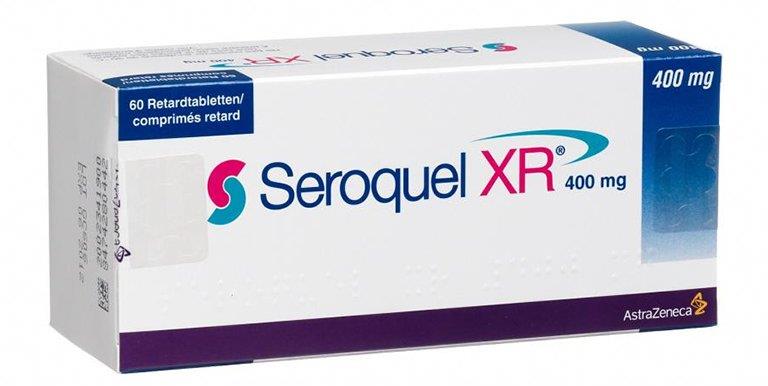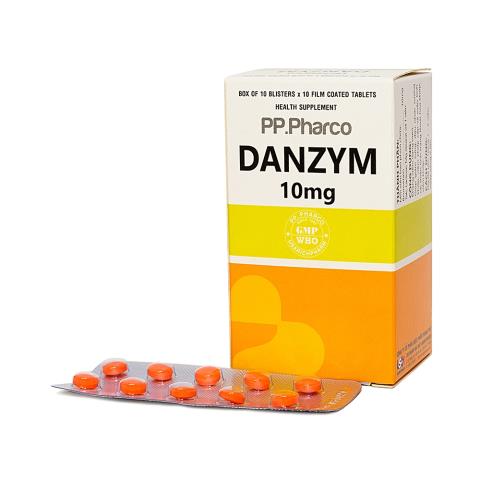Seroquel (quetiapin) is a medicine used to treat neurological conditions. The use of drugs is very complicated and also has many side effects. The following article will provide you with the necessary information about the drug Seroquel (quetiapine).
Main active ingredient: quetiapine.
Medicines containing similar ingredients : Morientes, Savi Quetiapin.
Seroquel is available in concentrations of 50, 200, 300, and 400.
content
1. What is Seroquel (quetiapine)?
With the active ingredient quetiapine, this is an atypical antipsychotic. Indicated for cases.
- Schizophrenia or prevention of relapse in already treated patients.
- Bipolar disorder. Including manic and depressive episodes associated with bipolar disorder. It is also used to prevent recurrence of the disease when previously stabilized.
- Support for major depressive episodes in patients with major depressive disorder who have not responded well to antidepressant monotherapy.
- Generalized anxiety disorder.

Seroquel XR (quetiapine)
2. Some other notes on how to take Seroquel (quetiapine)
- Should be taken at least 1 hour before meals, swallow whole, do not chew, do not crush, do not break.
- Adjust dose according to patient response.
- The drug is available in two dosage forms, a rapid-release (IR) tablet and a long-acting (XR) tablet. It is possible to switch from IR tablets taken several times a day to XR tablets 1 dose/day with the same total daily dose.
- Elderly patients should start with a dose of 50mg/day. The dose may be increased in increments of 50 mg until a therapeutic effect is achieved, depending on the clinical response and tolerability of the patient.
- No dose adjustment is required for patients with renal impairment.
- Use with caution in patients with hepatic impairment. The starting dose is usually 50 mg/day. The dose may be increased in increments of 50 mg depending on the clinical response and tolerability of the patient.
3. Contraindications when taking Seroquel (quetiapin)
Hypersensitivity to any of the ingredients of the drug.
4. Care should be taken when using the drug Seroquel (quetiapin)
- Thoughts of suicide or self-harm.
In the early stages of treatment, the drug may increase thoughts of suicide or self-harm. This is characteristic of depression, or related diseases. Patients should be closely monitored during the initiation of treatment, drug change or discontinuation. After the treatment, this thought will go away.

- Extrapyramidal syndrome.
- Symptoms can include restlessness, irritability, and restlessness. They appear within the first few weeks of treatment.
- Tardive dyskinesia.
- Drowsiness and dizziness.
- Orthostatic hypotension.
- Signs of sleep apnea. Attention should be paid to overweight/obese people or men.
- Convulsion
- Neuroleptic malignant syndrome.
- Clinical manifestations include excessive hyperthermia, altered mental status, muscle spasticity, etc.
- Severe neutropenia.
- Sympathetic inhibitory effect.
- Caution should be exercised when using Seroquel concurrently with parasympathomimetic agents, with or without urinary retention, prostatic hypertrophy, narrow-angle glaucoma.
- Weight gain.
- Increased blood sugar, blood lipids.
- Prolong the QT interval.
- Smoking withdrawal syndrome.
- Acute withdrawal symptoms such as nausea, vomiting, insomnia, headache, diarrhea, dizziness, and irritability may occur after abrupt discontinuation of the drug. Therefore, the dose should be gradually reduced and then discontinued.
- Dementia.
- Constipation and bowel obstruction.
- Jaundice due to liver.
- Venous thromboembolism (VTE).
5. Possible drug interactions when used with Seroquel (quetiapine)
- Ketoconazole
- Carbamazepine
- Phenytoin
- Imipramine
- Fluoxetine
- Thioridazine
6. Using Seroquel (quetiapin) on pregnant and lactating women
Weigh the benefits and risks when using this drug for this population.
7. Storage conditions for drugs Seroquel (quetiapin)
Do not store at temperatures above 30°C. Store in original packaging.
8. How much does Seroquel (quetiapin) cost?
The selling price of Seroquel is about 11,200 VND/tablet.
The antipsychotic quetiapine is used to treat schizophrenia, bipolar disorder, and related conditions. Attention should be paid to patient monitoring during treatment, especially in the early stages. The disease causes many dangerous side effects, if you see any unusual signs, you should immediately notify your doctor. The drug must be prescribed by a neurologist to be used.












